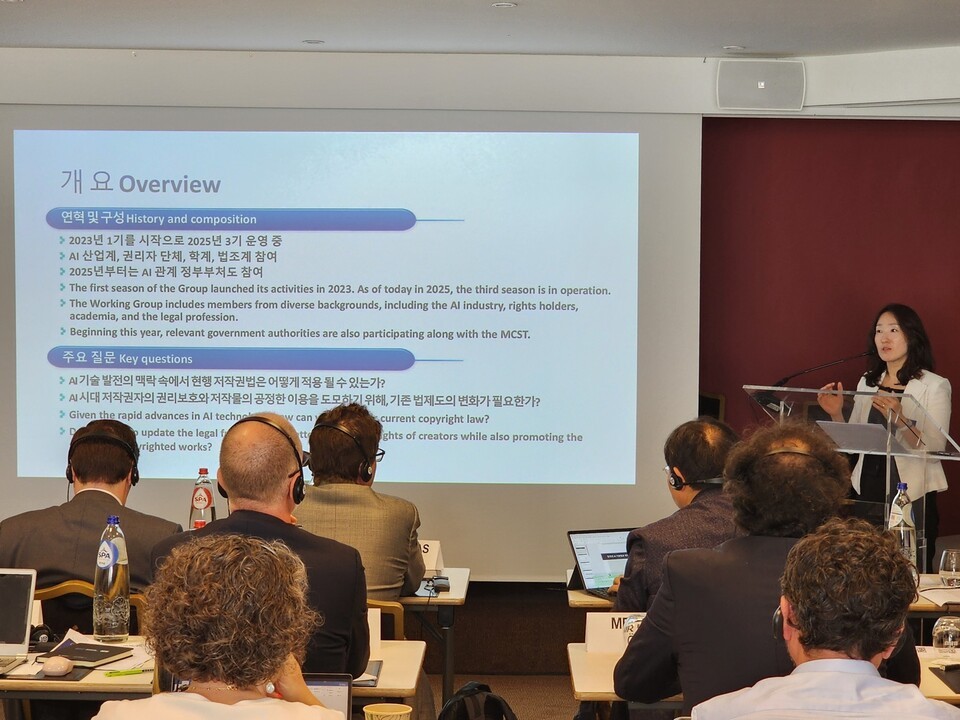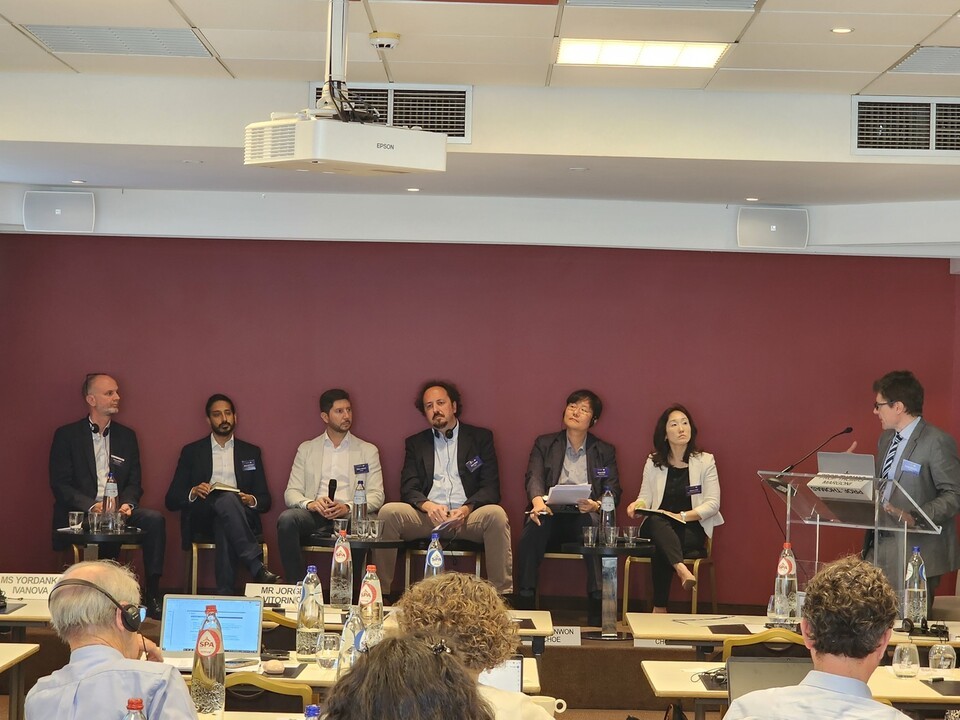On June 24 and 25, the Ministry of Culture, Sports and Tourism and the European Commission held the 2nd Korea-EU Copyright Roundtable and the Korea-EU Generative AI and Copyright Seminar in Brussels, Belgium.
The copyright roundtable held on the 24th discussed the legislative and institutional operation examples related to the use of works for educational purposes from both sides. Lee Jin-tae, a team leader at the Korea Copyright Commission, explained Korea’s copyright limitation system for educational purposes. Carla Osman, policy officer from the European Commission’s Directorate-General for Communications Networks, Content and Technology, introduced the relevant EU legislation.
Professor Choi Jin-won of Daegu University presented the operation status and current issues regarding the compensation system for educational purposes in Korea. Representatives from copyright organizations in Germany, the Netherlands, and Austria shared their own cases of collecting and distributing compensation. In the comprehensive discussion, Anneli Andersson of the Directorate-General for Trade at the European Commission served as chair and discussed cooperation methods between the two sides.

On the 25th, a seminar on the topic of generative AI and copyright was held as part of the Korea-EU Intellectual Property Cooperation Project (EU-RoK IP Action). Hye-yoon Choi, an officer from the Cultural Trade Cooperation Division at the Ministry of Culture, Sports and Tourism, Yordanka Ivanova, the Head of AI Law Implementation Oversight at the European Commission’s Directorate-General for Communications Networks, Content and Technology, and policy officer Stefano Gentile explained the related policies from both sides.
Professor Choi Jin-won presented the main copyright issues and solutions related to generative AI. Pablo Schumacher, legal advisor at the German AI company Aleph Alpha, presented the industry’s perspective. Antoine Aubert, a digital expert from the EU Intellectual Property Office’s EU Observatory on Infringements of Intellectual Property Rights, explained a recently published related report.
The comprehensive discussion, chaired by Thomas Margoni, a professor at the University of Leuven in Belgium, focused on the public-private cooperation model in the AI era and the future cooperation direction between the two sides.

In the afternoon of the same day, the Korean delegation visited the AI Office under the European Commission to listen to the main contents and plans of the code of conduct for the implementation of AI laws, as well as the progress of stakeholder opinion gathering. Both sides decided to continue exchanging policy information and cooperation for policy formulation related to generative AI copyright in the future.